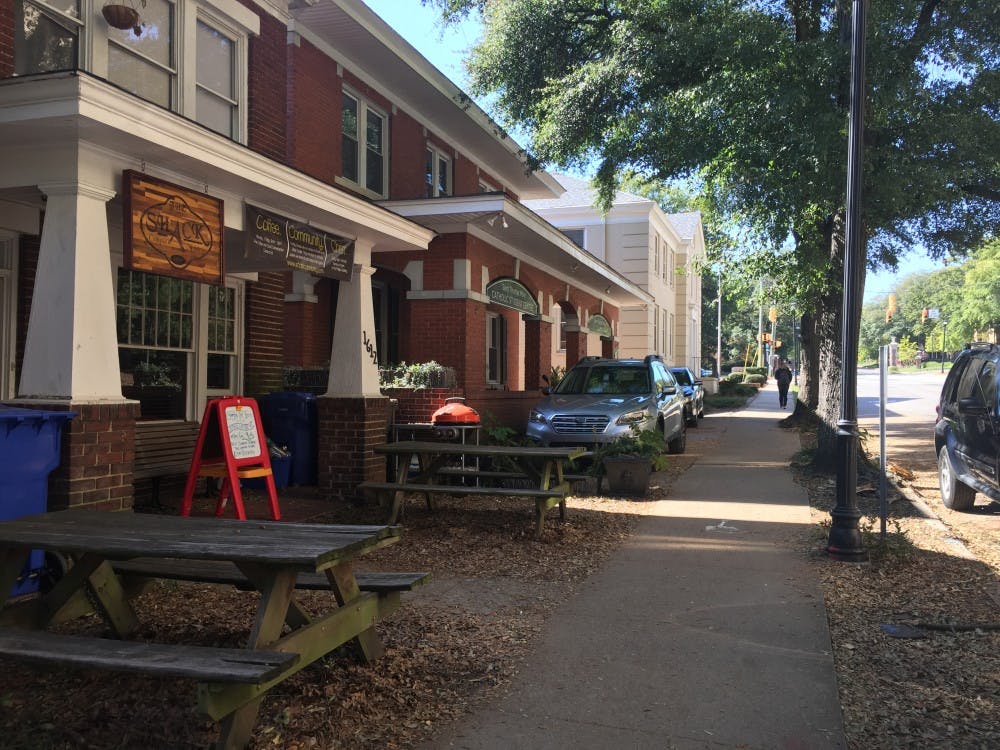InterVarsity Christian Fellowship is under fire for their policies towards LGBTQ persons and allies who work for them, and it's triggering complex discussions on the intersection of faith, sexual orientation and gender identity at USC and beyond.
A TIME Magazine report claiming that the organization was purging its staff of members of the LGBTQ community set off a barrage of articles about discrimination throughout the organization. The TIME report says InterVarsity has given staffers until Nov. 11 to agree to their policies regarding same-sex marriage and other LGBTQ issues or face termination. It cites Greg Jao, the organization's vice president and director of campus outreach, who told the magazine in part: “We internally categorize these as involuntary terminations due to misalignment with InterVarsity ministry principles, which is a category we use for people who leave for theological and philosophy of ministry disagreements."
InterVarsity attempted to clarify their policy in a statement, calling the TIME piece "not accurate" and claiming "No InterVarsity employee will be fired for their views on gay marriage."
Adam Salloum, who works as InterVarsity's area director for South Carolina and ran USC's chapter for four years, echoed a similar sentiment. He says the policy isn't anything new, and that it only affects paid staff.
"The process that InterVarsity put forth was one of clarifying our understanding theologically, scripturally, around questions of human sexuality," he said. Salloum said that employees were given 18 months to review InterVarsity's positions on issues surrouding the LGBTQ community in detail, and that at the end of that period those who still found themselves at odds with those policies were then in a position to to seek employment at organizations with more similar values.
IRIS president Kaitlin McClamrock, a third-year political science student, says that while she understands InterVarsity is "just recommending" that dissenting employees leave the organization, she believes the policy is representative of the workplace discrimination many members of the LGBTQ community still face.
"I think it's optimistic and probably a best-case scenario for people, LGTBQ+ and ally, to have the opportunity to find jobs that fit their values," she said.
She added that "additional requirements" when it comes to coming out and offering opinions place an "unfair" burden on LGBTQ persons, and that employers taking even a pro-LGBTQ can create issues.
"All in all, employers should probably stay out of it," she said. "I appreciate the sentiment of organizations supporting LGBTQ+ rights, but in the end, much of this 'support' falls flat when it comes to resources, and simply contributes to the corporatizaiton of pride."
InterVarsity members at USC have felt the effects of the response to the policy despite the fact that the policy doesn't apply to them. Fourth-year exercise science student Torie Atkin has been involved with InterVarsity since her first year on campus, and she calls the ministry her "family."
"The media attention has been confusing," she said.
She says the chapter hasn't discussed the policy, but that they remain committed to inclusiveness. "For members of InterVarsity, we try to make sure that our community is a safe place for people of any belief and every background."
The treatment of LBGTQ students and allies within campus ministries was the first thought of Pastor Frank Anderson, head of the Lutheran Campus Ministry at USC, when he heard about the InterVarsity policy and other incidents involving campus ministries.
"My concern is always someone who's struggling with their sexuality might end up in a ministry that really is antithetical to their belief of who they are sexually," he said, "and that can be very damaging. We've seen what happens when people try to change people."
McClamrock also hopes that religious LGBTQ persons and allies find acceptance at USC.
"IRIS works with many different religious groups and has found an amazing support system of religious organizations on campus and around Columbia," she said.

